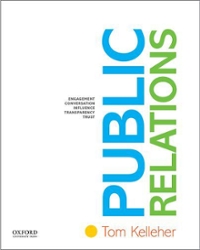Question
1) If we assume that Daniel consumes 5 beers at a local bar every week and he ends up spending $25 each time he goes
1) If we assume that Daniel consumes 5 beers at a local bar every week and he ends up spending $25 each time he goes to the bar. Based on previous years we can predict that his behavior won't change and that he will spend those $25 each week. After taking ECON 2000, he starts crunching some numbers and intends to stop going to the bar and instead he will save those $25 per week. He will deposit them at the end of the year in an account that earns 6%. Daniel plans to keep this account until he retires in 40 years. How much money will he have in the future?
2) A firm is examining the following three mutually exclusive alternatives. This company assumes a 10% required rate of return and a 5-year useful life for each alternative. Use benefit-cost ratio analysis to determine which option should be selected.
A B C
Initial Cost $600 $500 $200
Uniform Annual Benefits $158.3 $138.7 $58.3
3) Using benefit-cost ratio analysis, a 10-year useful life and a MARR of 25%, determine which of the following mutually exclusive models should be selected.
A B C D E
Initial Cost $100 $200 $300 $400 $500
Annual Benefits $37 $60 $83 $137 $150
4) Using a benefit-cost ratio analysis, select which one of the 3 alternatives shown below should be selected. Each alternative has a 10-year useful life and the company is assuming a 20% MARR.
A B C
Initial Cost $560 $340 $120
Annual Benefits $140 $100 $40
Salvage Value $40 $0 $0
5) Consider a project what will have an initial cost of $1.2M and will have annual benefits of $200,000 per year. Calculate the payback period of this project.
6) Consider the following options and using the payback period method determine which alternative should be selected.
Year A B
0 -$215,000 -$185,000
1 $15,000 $67,000
2 $25,000 $63,000
3 $55,000 $55,000
4 $105,000 $76,000
5 $30,000 $12,000
Which investment has a better discounted payback period if the interest rate is 9% per period?
7) YMCMB is considering two equipment investments that are estimated as follows:
Year A B
0 -$15,000 -$16,000
1 $5,000 $6,000
2 $5,000 $6,000
3 $5,000 $6,000
4 $5,000 $6,000
5 $5,000 $6,000
Which investment has a better discounted payback period if the interest rate is 9% per period?
Step by Step Solution
There are 3 Steps involved in it
Step: 1

Get Instant Access to Expert-Tailored Solutions
See step-by-step solutions with expert insights and AI powered tools for academic success
Step: 2

Step: 3

Ace Your Homework with AI
Get the answers you need in no time with our AI-driven, step-by-step assistance
Get Started


